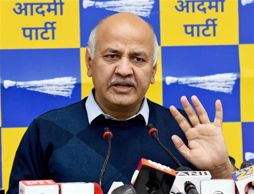This year marks many significant anniversaries, but none more important than Mahatma Gandhi's birth anniversary on October 2. Gandhiji will turn 150 next year and a slew of celebrations will mark the event: starting from Swachch Bharat to seminars, lectures and publications, we shall be reminded of his enormous contribution to India and the world. The question that haunts many Indians, though, is whether we have really imbibed even one of his sacred precepts and followed the path he showed us. To those born in the last decade of the 20th century and to those who are infants now, will he mean anything at all? Have we lost the Mahatma in this new India that we are hurtling towards?
Let us try and remember what we most venerate Gandhiji for: the first thought that comes to mind is his unflinching attachment to non-violence and communal harmony. Look around your world today and where do you find either of these principles practised? Violence in any form, word, deed or action, was abhorrent to him and ahimsa (non-violence) became his most effective tool against a colonial power that was simply unable to shake his resolve. Yet today, despite the lip service paid to peace by every political party, we find ourselves in the most violent ethos since Independence. The level of physical violence — mob lynchings, child abuse, rape and sexual oppression, caste and communal intolerance — is unprecedented. Above all, look at the vocabulary of violence that has infected our political debates. I don't remember any time in our past when abuse and hatred was routinely hurled at political rivals. Anger, rage and crass disregard for religious sentiments are now accepted as normal social behaviour.
Again, Gandhiji's most memorable talisman is one which says that when in a dilemma while making a decision, we should think of the poorest Indian and ask whether what we are about to do will benefit him. How absurdly simple it seemed to a man who had forsaken everything to serve the poor and how difficult it seems to our political leaders now. Bullet trains, costly and lethal defence hardware, expensive furnishings and limousines for our power elite, huge salaries for our parliamentarians — are these really of benefit to the poor tribal who lives in a hut in a village that has no road, school or dispensary? Statues and memorials for party icons may serve the interests of those who build them, but will it change the life of a starving family?
Given the history of corruption and greed, Gandhian economics has long being bade a goodbye. The cult of khadi and self-reliant village republics, so dear to the Mahatma, would have ensured that even the poorest family unit was able to live a life of dignity. Yet, thanks to the persuasive oratory of the socialists, the path chosen promoted dams, industrialisation and a bloated public sector in the hands of union bosses. The result was that we snuffed out the simple village economies of our indigenous textile and craft sector and instead of the beautiful homespun textiles our weavers were adept at, we have only succeeded in promoting ugly and climatically unsuitable polyester clothing. Far from giving dignity to labour, we have alienated and destroyed our village cottage industries and made our rural folk permanent migrants in search of work in alien and hostile lands.
We come now to the tricky terrain of religion and communal harmony. How pained our freedom fighters would be were they to see how hostile our religious relationships have become. The last few years have raised the pitch of bigoted rantings so high that all voices of reason have drowned in the cacophony of mine and thine. I doubt whether I will see these broken bonds repaired in my lifetime and shudder to think of what lies ahead for those who are being nurtured on this diet of hatred and intolerance. The great poet Rahim has put it best: “Rahiman dhaga prem ka, no tore chatkaye; Tute phir na jur sake, juday gaantht par jaye.” (Do not snap the thread of love that is impossible to join. And if brought together again, will always have a knot).
Finally, a word about Gandhiji’s last few days spent in Birla House where he undertook a fast for communal harmony and the just restitution of the sovereign funds to Pakistan. Those who have seen his photos from that time — of his face, tired and drawn with pain — cannot help noting that he had already retreated from this new India. He realised his presence was an embarrassing reminder to his party which was impatient to build a new country. Like an old and ailing father who lingers on and on, he sensed that he had become a burden on the very family he raised. His loneliness is an indictment on all of us who have failed him in every way. So perhaps the new India, painted in the gaudy colours of a new palette, is actually a palimpsest on an older, cleaner, more innocent black and white world that he took away with him in 1948. Only sometimes, when the acrylic paint of this new portrait peels, can we see the true colours of an India that died within a few months of its birth.



























